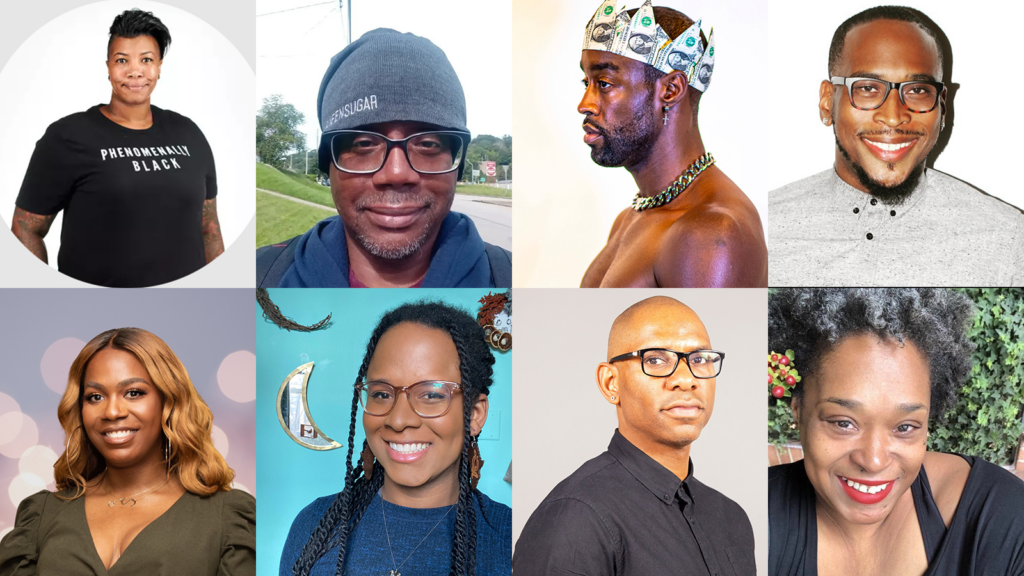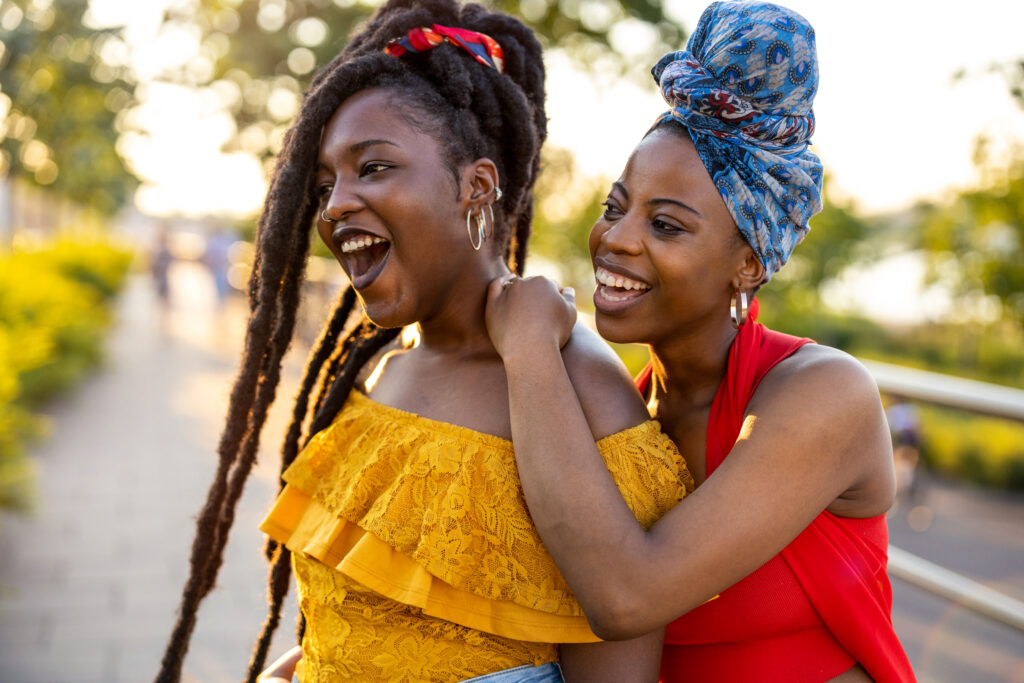By Kellee Terrell

For many in the Black LGBTQ+ community, the month of June can embody a profound sense of freedom. Not only is June LGBTQ+ Pride Month—which was literally born from a riot against police harassment and brutality—but it also encompasses Juneteenth. This federal holiday, which falls on June 19, celebrates the effective end of chattel slavery in the United States. In 1865, a Union general arrived in Galveston, Texas, to inform enslaved African-Americans of their freedom and the end of the Civil War, two years after the Emancipation Proclamation.
While Pride and Juneteenth are celebrations of liberation, resilience, and progress for Black queer people, the interwovenness of the two also illuminates the beauty and reality of their interconnected identities and the oppression they face. Black queer people fight against both racism—in and outside of the LGBTQ+ community—and homophobia, transphobia, and misogynoir—from in and outside communities of color. This is especially important as we confront increasing white supremacy, continued over-policing, attacks on our freedoms, and attempts to erase our existence from and contributions to this nation’s fabric.
But one aspect of our identity that we often forget to acknowledge is the importance of Black joy. The very notion of carving out joy and happiness in the face of oppression is the ultimate act of resistance. It’s also a reminder that we are more than the discrimination we face and the trauma we’ve endured. We control our happiness for ourselves. This Juneteenth, we asked Black LGBTQ+ people what Black joy and liberation mean to them and how they create it for themselves in their everyday lives.
Here’s what they said about joy:
Portia Burch
Pronouns: she/her
Chicago, IL
To me, Black joy is an act as necessary as breathing. I spent a lot of my younger years trying to minimize the happiness that comes from fully and unapologetically living out loud, and celebrating myself today honors young me in a beautiful way. I also look at my Black joy as a way of healing out loud, and by doing so, it shows other Black people, especially women and femmes, that healing is possible. It’s truly an act of self-love.
In a world that does so much to steal our joy, I look for the bright spots as often as I can. I do this by celebrating friendships, celebrating myself, and allowing myself to feel the love I know I deserve. I celebrate being here, thriving, and knowing that the joy I have is also my superpower.
Ryan Canty
Pronouns: He/Him
Pittsburgh, PA
Black joy plays a huge role in my life and my liberation. It’s how I manage the daily micro and macro-aggressions I face as a Black Same Gender Loving man working as a DV/IPV Advocate and in society. It’s part of how I choose to be present in this world and be my authentic self at all times in the face of the everyday racism, classism, and homophobia I experience daily. I find my joy in those small and large moments during my work day and outside of work where I get to experience what life is like away from the bullshit.
Black joy plays a huge role in my liberation and as someone who manages multiple mental health diagnoses, I try to be very intentional about what I expose myself to in terms of stress. I use joy to combat that stress and keep things manageable. In my life, Black joy looks like dancing at queer parties, being around my friends, traveling to see friends, and being more intentional about traveling by myself. It’s also about being by myself and relisting my solitude to recharge and find joy in silence.
It’s about friends and family and falling in love with someone and yourself. It’s also those small and large breakthroughs in therapy and my healing journey. It’s reading actual books, meditating, and working out. It’s watching cooking shows on the PBS/Create channel all weekend. It’s chatting with friends who don’t live near me on Zoom, google meets, on the phone – texting and actually talking to each other and giving updates on our lives. It’s returning to creative pursuits like writing and performing. Most importantly, it’s about protecting myself from the negativity and the realities of living in this country.
Kelvin Bloodsaw Jr.
Pronouns: He/Him
Philadelphia, PA (Philly)
Joy makes up the fiber and essence of the individual I have become. I cannot speak of joy without speaking of love because the two go hand in hand. As a Black man learning to celebrate and love every facet of myself, Black joy is an integral part of my journey thus far and one thing that brings me so much joy is my music, which has transformed my life for the better.
While my self-liberation has always been something to strive for, it was certainly not free and did not come without a price. I’ve come to learn that true joy is based on happiness, not happenings. This proud Black man’s joy is triumphing over tribulations and being grateful for life.
Daryl Hamilton
Pronouns: He/Him
Washington, D.C.
Happy Juneteenth!!!
The role that Black joy plays in my life is essential to my well-being. As a Black gay man, I find joy in being with my community; taking time to fellowship, laugh and sit and talk to members of my community brings me joy. Also, it’s about taking time to honor my body by nourishing it with healthy foods and giving my body rest. I carve out joy by being intentional with my time and relationships and engage with people that uplift and pour safety and trust into me.
Here’s what they said about liberation:
Shar Jossell
Pronouns: she/her
Los Angeles, CA
When it comes to the intersections of my womanhood, transness, and Blackness, freedom is an all-encompassing concept. It means real equity and equality for Black people from all corners of the nation and across the globe. We cannot expect any formidable progress if we continue to disregard the most marginalized in our communities. Therefore, the fight for freedom cannot waiver when turbulence occurs. A key requirement for liberation is an acknowledgment of past transgressions and a willingness and hunger to unite for a brighter tomorrow for everyone.
Robin Carnilius
Pronouns: they/them
Chicago, IL
Being Black, queer, and trans, the intersectionality of my marginalized identities often makes me a target wherever I am. It’s a weight on my shoulders and a plague on my mind, always wondering if I’ll be the next Black person killed by police or the next POC trans woman killed. I’ve gotten called “tranny” “faggot” and “that’s a man” by different Black strangers, been fetishized and dehumanized by white queer men, falsely arrested by white officers, and the list goes on. And I say all this as one of the privileged people who grew up middle class.
For me, freedom and liberation mean living in this world without fear of harassment or death for simply existing. It’s freedom from trying to “pass” for safety, freedom to do something unapologetically Black and not have it be labeled “ghetto” or “aggressive.” It’s protections and the pursuit of happiness that only the privileged enjoy. If we could exterminate the roles of colonization, Christianity, and capitalism in our government and media, it would go a long way toward changing minds and systems and freeing us all.
Kenyon Farrow
Pronouns: he/him
Cleveland Heights, OH
It’s really hard to imagine what real freedom and liberation look like when my very existence in this country is forged out of such violence and brutality. Freedom and liberation aren’t passive or about prayer, meditation, or therapy. Those things can help us navigate and transform the harm we experience. But freedom is a process, a pathway, in which we have to transform our entire society to ensure all people are fed, housed, clothed, and experience life without unnecessary deprivation of resources. And liberation is when we all get to have meaningful work and connection to family and community and can live lives of dignity, joy, and beauty as much as possible. So I don’t think I can be free when someone else is subjected to oppression, violence, and deprivation.
If we sit down every day and simply think about the attacks on our community, we wouldn’t make it, y’all. So we need to seek joy and do so with each other as part of our liberation. We have to celebrate that in this fight because I don’t want us to be like our foremothers and fathers were when they were so unhappy doing this fight. If we are going to sustain ourselves, and our community is going to sustain itself, then it means that we have to impart moments of joy. When you think about Black communities, that’s what we’ve always done. They didn’t create it for us; we created it before. Finally, liberation is also about fighting with vigor and the ability to dream of the world of what we want it to look like for ourselves.
Deon Haywood
Pronouns: she/her
New Orleans, LA
If we sit down every day and simply think about the attacks on our community, we wouldn’t make it, y’all. So we need to seek joy and do so with each other as part of our liberation. We have to celebrate that in this fight because I don’t want us to be like our foremothers and fathers were when they were so unhappy doing this fight. If we are going to sustain ourselves, and our community is going to sustain itself, then it means that we have to impart moments of joy. When you think about Black communities, that’s what we’ve always done. They didn’t create it for us; we created it before. Finally, liberation is also about fighting with vigor and the ability to dream of the world of what we want it to look like for ourselves.

